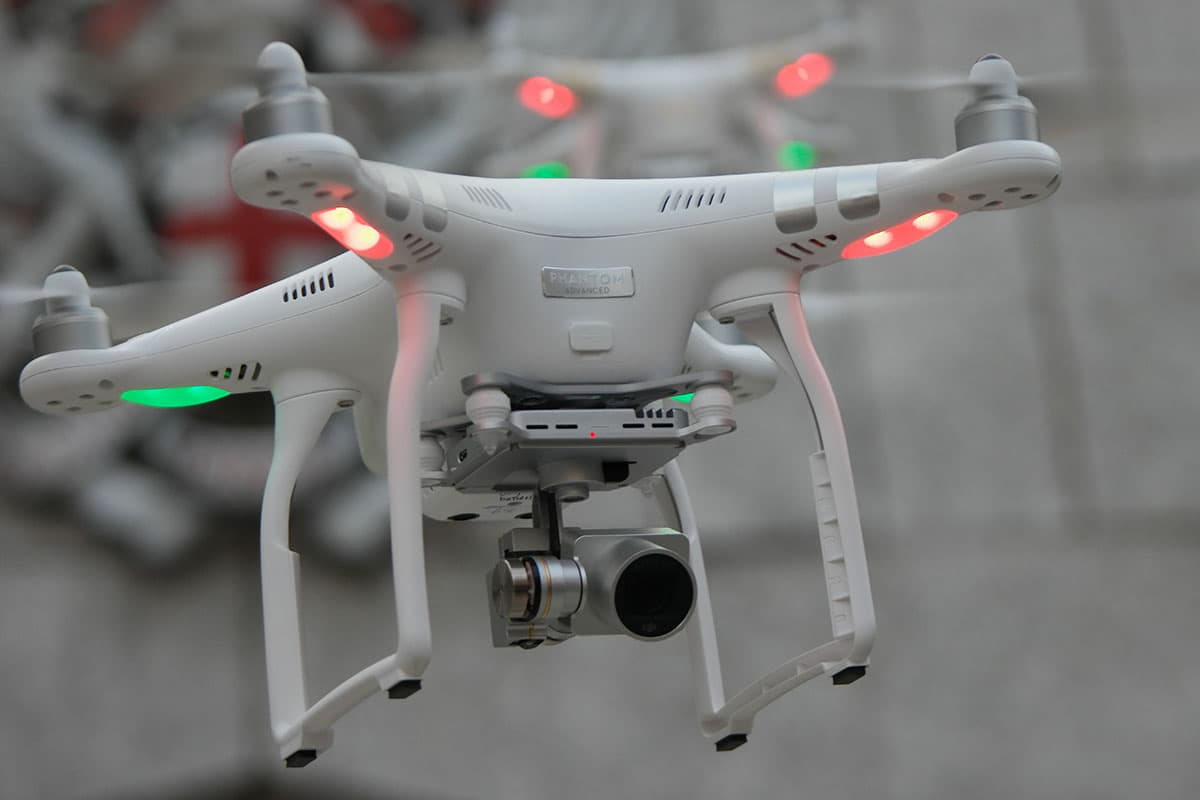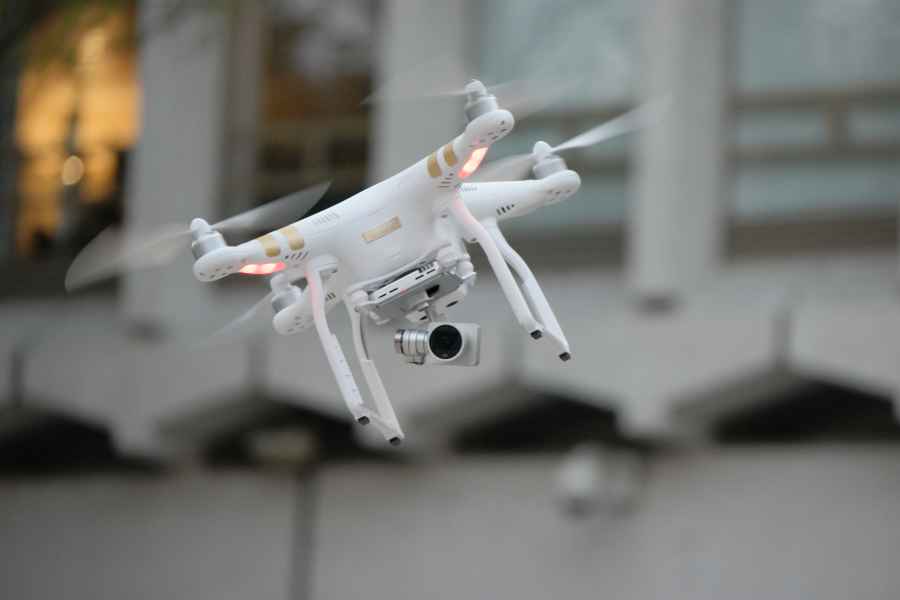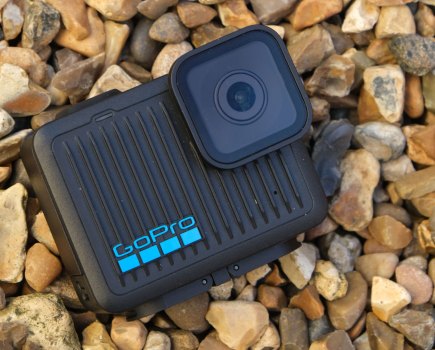That is the opinion of 40% of British adults, according to a survey by the British Airline Pilots’ Association (BALPA).
Around a third of those surveyed (31%) said that no one should be allowed to fly a drone over urban areas.

Slung under the Phantom 3 advanced is a camera capable of recording 12MP stills in both JPEG and DNG raw format
BALPA is calling for a tougher laws after 50% of those polled said that drone users should be handed a prison sentence if their device ‘endangers an aircraft, but does not cause the aircraft to crash’.
‘Safe drone zone’
BALPA general secretary Jim McAuslan added: ‘Drone technology is taking off and we want to make sure the country can benefit from the business and leisure opportunities that it could offer without putting flight safety at risk.
‘Pilots and the public want the UK to be a “safe drone zone” and these polling results show that the public backs stricter laws on training for drone pilots and punishment for endangering aircraft.’
Currently, people flying a drone for commercial purposes require permission from the Civil Aviation Authority (CAA).
Drone enthusiasts don’t need CAA permission unless they plan to fly a drone close to people or objects.
Specifically, this means flight over or within 150 metres of any congested area, over or within 150 metres of an organised open-air assembly of more than 1,000 persons, or flight within 50 metres of any person, vessel, vehicle or structure not under the control of the pilot.
Flights are currently restricted to 400 feet above surface-level, unless appropriate air traffic control unit permission is obtained.
BALPA today demanded tougher drone laws as it holds a summit to discuss the matter.
The survey, conducted for BALPA by ComRes, was based on online interviews with 2,036 British adults between 10-12 April 2015.
BALPA’s key demands:
• Every operator flying small RPAS (Remotely Piloted Aircraft Systems) for commercial purposes to be licensed, appropriately trained and insured for any potential damage or injury to people or property
• Rules covering all small RPAS operators to be properly enforced, including restricting flight to below 400 feet and no closer than 50 metres to people or property
• The public to be fully consulted before any large RPAS is flown commercially over the UK and the strict rules governing this agreed by passengers and residents, pilots, the regulators, government and national parliaments
• No commercial flying of RPAS beyond the ‘line of sight’ of the operator until the major security concerns are fully addressed, including the security of the datalink to the RPAS and ground station from where the RPAS is operated
• A 100% reliable ‘sense and avoid’ system for all large RPAS flown in airspace with other aircraft to prevent collisions
• That only a trained pilot should be allowed to fly an RPAS in airspace used by other passenger, freight or light aircraft








